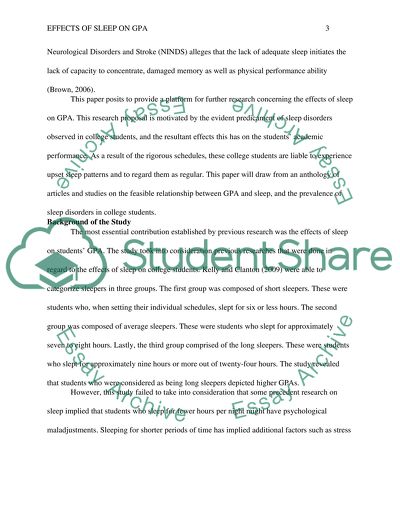Cite this document
(“Effects of Sleep on GPA Research Proposal Example | Topics and Well Written Essays - 2250 words”, n.d.)
Retrieved from https://studentshare.org/psychology/1397312-effects-of-sleep-on-gpa
Retrieved from https://studentshare.org/psychology/1397312-effects-of-sleep-on-gpa
(Effects of Sleep on GPA Research Proposal Example | Topics and Well Written Essays - 2250 Words)
https://studentshare.org/psychology/1397312-effects-of-sleep-on-gpa.
https://studentshare.org/psychology/1397312-effects-of-sleep-on-gpa.
“Effects of Sleep on GPA Research Proposal Example | Topics and Well Written Essays - 2250 Words”, n.d. https://studentshare.org/psychology/1397312-effects-of-sleep-on-gpa.


